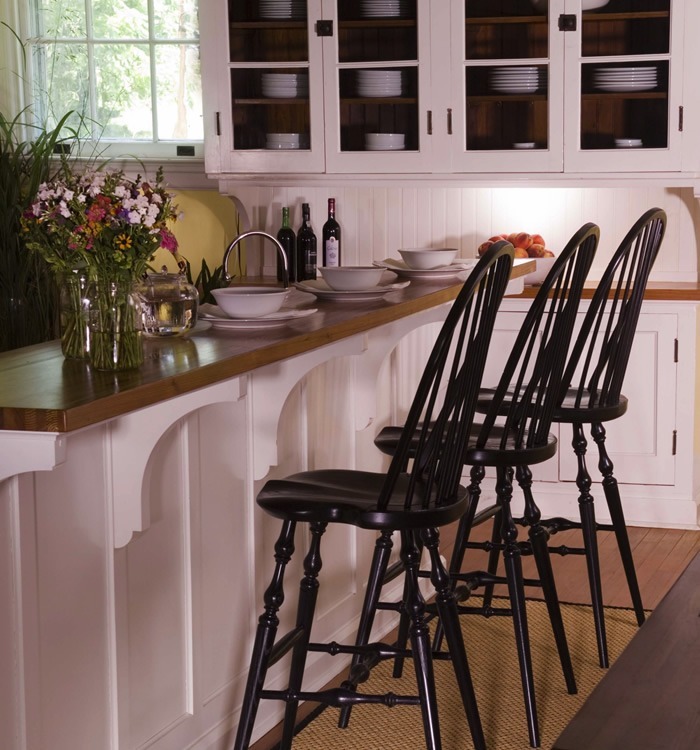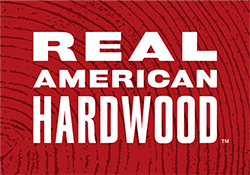Solid Hardwood Furniture, Still the Classic Choice
For centuries, cherry, oak, maple, ash and other American hardwoods have been the preferred selection in fine furniture. Design trends have come and gone, but solid hardwood furniture continues to be the classic choice because it enhances every decor and lifestyle.
Every Piece Unique
Stains and other effects dramatize or disguise natural color and grain. While the hardwoods usually look fine with a clear finish, taste and design may favor a little enhancement. The careful buyer remembers that terms like “oak finish” or “cherry finish” may only mean they have given some other material the appearance of the named wood; “solid oak” or “solid cherry” usually are marked as such.
Stains with natural hardwood names may be applied to almost any wood:
Cherry
Usually means medium to dark red-brown.
Maple
Stains tend toward light brown in color.
Walnut
Distinctive shades range from grayish-yellow to brown with cocoa overtones.
Fruitwood
Usually signifies light-colored apple or pearwood, not cherry, in the actual woods, which are often treated with a thin wash of brown stain. Any light-colored wood can be given a “fruitwood” look.
Finish alternatives aren’t limited to hardwood tones. Some popular treatments include:
Antique
An opaque coat of paint or stain is followed by contrasting washes, spatters or glazes. Furniture may be scuffed, buffed, battered or punctured for aged appearance.
Pickled
The wood’s open pores are emphasized with a contrasting pigment, while the background wood is left natural or stained.
Glazed
Glazes are transparent or semi-transparent stains which are applied after the sealer coat. They are often used to even out a light and dark area after the staining and sealing process.
Made to take it
Hardwoods may be elegant, but they’re also meant for day-to-day use. Households with small children and pets are no problem for solid hardwood furniture, which acquires character and distinction over years of ownership.

Photo courtesy of ©Caperton Furnitureworks
Natural hardwoods stand up to many household mishaps better than laminates and synthetics. Since the grain and pattern of solid hardwoods go all the way through, even scuffs and burns that would permanently damage synthetic surfaces can be repaired with relative ease. Some furniture makers offer “super finishes” that give solid hardwood surfaces even greater resistance to burns and scratches.
The Homegrown Choice
American hardwoods are a sustainable, natural resource. Naturally abundant in American forests, nearly twice as much hardwood grows as is harvested each year. The volume of hardwoods is 90 percent larger than it was 50 years ago, according to the U.S. Forest Service. That’s the very definition of sustainability.
While domestic furniture making has been on the decline in recent years due to foreign imports, U.S. manufacturers still take pride in turning out solid hardwood pieces. As Caperton emphasizes, “We work exclusively with solid wood and still use many of the fine woodworking techniques considered standard in the 19th century. We still build furniture as Shakers did over a century ago…by hand, one piece at a time.”



